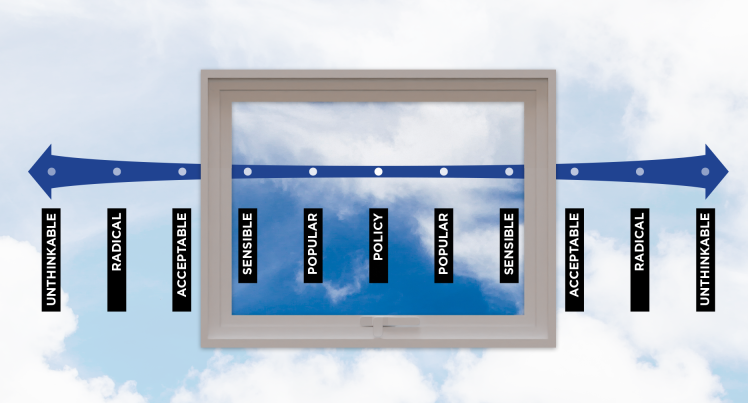
THE CNMI government’s current difficulties stem from not having enough revenue to pay all its obligations. It’s an old problem that dates back at least to the Trust Territory era. Not surprisingly, there is also nothing new with the proposed solutions.
The government, for starters, should live within its means, to quote the current governor — and his predecessors.
How? As stated by many politicians and concerned citizens then and now, by identifying redundant government offices and programs, and eliminating and/or consolidating them. The 2020 Fiscal Response Summit report — which the then-lt. governor and now the incumbent governor wholeheartedly endorsed — mentioned specific examples:
Eliminate the municipal council staff, zoning and all non-federal positions in the Divisions of Agriculture and Fish & Wildlife, and merge the following:
• Youth Affairs with the Division of Youth Services
• Fire, Public Safety, Corrections
• Commerce and Labor
• Grants management office and Finance
• Finance and Commerce
• DPW and the mayor’s offices
• CDA and Commerce
• Parks & Rec with DPL
• DLNR and DPL
• NMTI and NMC
What do with the affected personnel? The most sensible — because “doable” — proposal was suggested by some lawmakers themselves in the past: attrition. Once a redundant post is vacated, abolish it permanently.
Other significant cost-cutting “solutions” that were first proposed since, well, “ever since,” involve a reduction in the use of government vehicles, air-cons, cell phones and “professional services.” Over the years, privatizing CUC, CPA, and CHCC has also been on the list of “badly needed reforms” mentioned by many a concerned citizen. Some have also suggested school vouchers to alleviate “overcrowding” in public schools.
In other words, “everyone” knows what the problem is and the possible solutions. Or as the then-lt. governor (and now governor) said over four years ago, “This is something that our Commonwealth should have done a long time ago.” He should know. He has been an elected official since 2002.
So why is it still a problem? And why hasn’t anyone proposed any of the above “possible solutions”?
Because according to James M. Hohman, an economist and director of fiscal policy at the Mackinac Center for Public Policy in Michigan, “Elected officials cannot enact whatever legislation they like. They find themselves bound by what is popular or at least their sense of what is popular. They can only pass laws in a narrow band of ideas, and that range is called the Overton Window,” named for the late Joseph P. Overton, a vice president at the Mackinac Center.
Again, “since ever since,” government is big because big government is highly popular among voters. Everyone is for “small government” and for “reducing the fat,” but no one among government employees and their families — the CNMI’s largest voting bloc — would vote for their own unemployment.
Most government jobs, essentially, are what economist Milton Friedman would call “spoon jobs.” Milton, as recounted by economic writer Stephen Moore, once “recalled traveling to an Asian country in the 1960s and visiting a worksite where a new canal was being built. He was shocked to see that, instead of modern tractors and earth movers, the workers had shovels. He asked why there were so few machines. The government bureaucrat explained: ‘You don’t understand. This is a jobs program.’ To which Milton replied: ‘Oh, I thought you were trying to build a canal. If it’s jobs you want, then you should give these workers spoons, not shovels.’ ”
As in many other countries and jurisdictions, government is a jobs program for voters in the CNMI. Government’s primary function is not to be “efficient” — “government efficiency” is the most moronic of oxymorons. No. Government exists to hire voters and provide low-cost or — even better — free services to them. (See healthcare/medical referrals, education, scholarships, homesteads, utilities, road repairs, etc., etc.)
To paraphrase a former president of the European Commission, Jean-Claude Juncker, elected officials know what should be done, but they also want to get elected afterward.
If government reforms are truly “badly needed” then they would have been implemented a long time ago. But again, then and now, there are not enough votes for such reforms.
And this brings us back to the Overton Window. To quote Lawrence Reed, it “posits that at any given moment, politicians can only operate and get re-elected when they take positions within a narrow framework shaped by prevailing public opinion. Shift the window by changing popular ideas, and you can thereby make what’s politically unpalatable today into a mainstream view tomorrow.”
That, of course, is easier said than done. Hence, the Overton Window advises us to, first of all, identify where public opinion currently is, and whether our recommended reforms are inside or outside the window. To advance reforms outside the current window, advocates should introduce less controversial elements of a reform first. In the CNMI government’s case, this should be the consolidation — not the outright elimination — of duplicative agencies and offices, followed by an attrition policy. Resulting vacancies will not be filled again.
Another viable reform strategy is to promote the further development of the private sector, which is key to growing the economy. As CNMI history has shown, economic growth can not only reduce the islands’ dependence on federal dole-outs, but it also creates private sector jobs for local residents.
Economists say the Overton Window often shifts dramatically during crises. Hence, “advocates can capitalize on moments of widespread dissatisfaction to push for reforms that may have been previously unacceptable.”
Regardless of what the administration’s press release writers would want us to believe, the CNMI, clearly, is in a crisis moment. The Overton Window can shift dramatically during crises — but that requires reformists stepping up to the plate. In the CNMI’s case, they don’t even need to elect like-minded individuals to public office. See the CNMI Constitution’s Article IX, Section 1: “The people may enact laws by initiative.”
Send feedback to editor@mvariety.com











